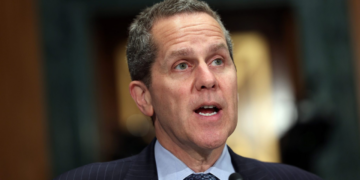In a decision that could significantly influence labor relations within the gig economy, the National Labor Relations Board (NLRB) has ruled that Amazon is a joint employer of its subcontracted delivery drivers in Palmdale, California.
The Washington Post reports that the ruling mandates that Amazon negotiate with the Teamsters union, which has been working to unionize Amazon’s workforce since 2021.
The NLRB’s regional director concluded that Amazon shares employer responsibilities with its third-party contractors — known as its Delivery Service Partners (DSPs). This decision came after an investigation into unfair labor practices prompted by charges from the Teamsters union.
The union, which also represents delivery drivers for companies including UPS and DHL, argued that Amazon had failed to bargain in good faith, made unlawful threats, and held captive audience meetings to deter union activities.
Similar to how rideshare companies like Uber and Lyft classify their drivers, Amazon has long maintained that its DSPs and their drivers are independent entities — absolving the company of direct labor responsibilities.
Courtroom View Network reports that this claim was recently challenged in a recent Georgia jury decision. In the Georgia case, Amazon was held accountable for the negligence of its “independent” delivery drivers. The jury in Georgia concluded that Amazon’s control over the DSPs and their drivers was significant enough to hold the company liable for their actions.
The repercussions of the NLRB’s ruling could be far-reaching within established U.S. gig economy. Should Amazon fail to reach a settlement, the NLRB plans to file a formal complaint and arrange a hearing before an administrative law judge.
Currently, the implications of this decision are limited to the Palmdale drivers, but this could set a precedent for companies that rely on gig workers and contractors in other markets across the U.S.
Amazon has disputed the NLRB’s findings. In a statement, Amazon spokesperson Eileen Hards argued that most of the Teamsters’ substantial claims had been dismissed and expressed confidence that remaining allegations would similarly be overruled.
How companies classify their workforce and manage their liabilities and responsibilities is a subject constantly under a microscope by legal experts. As the gig economy continues to expand globally, the implications of this ruling extend beyond Amazon and into the broader future of work.















